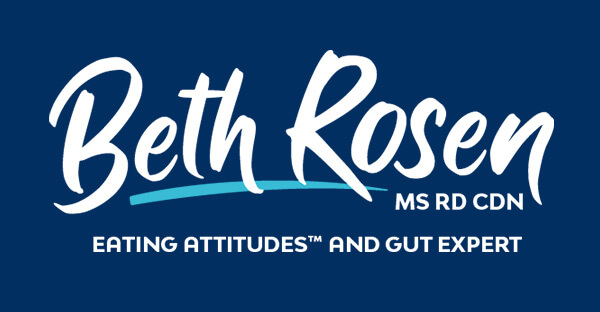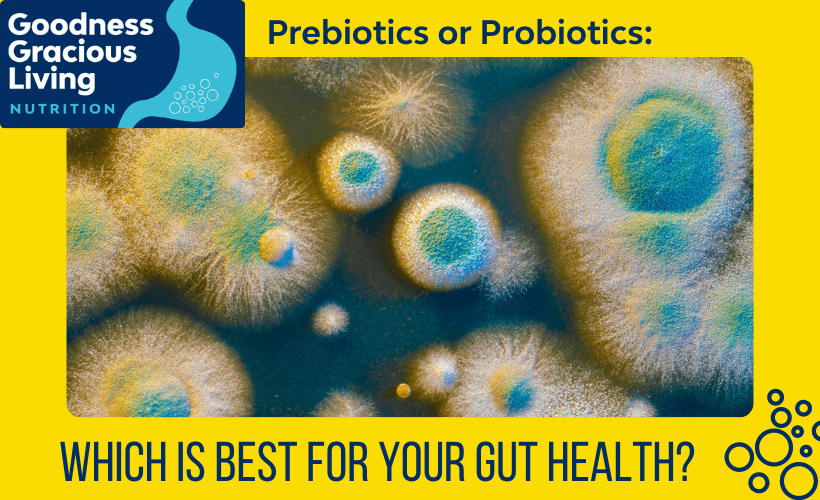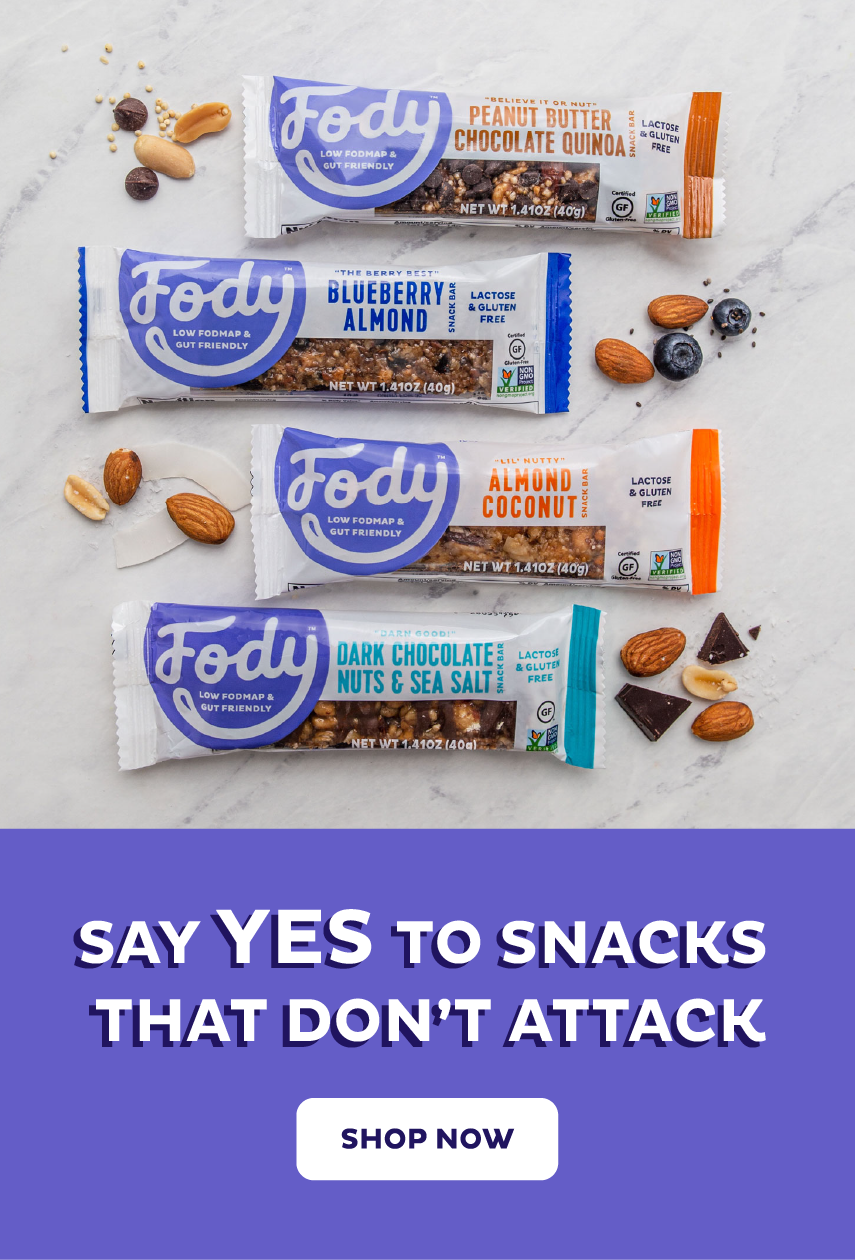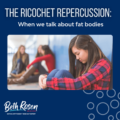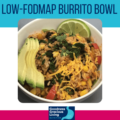How to document and explain your IBS for the best medical care.
Probiotics or Prebiotics: Which is best for your Gut Health?
Have you heard about Probiotics for gut health? What about Prebiotics? Here is your primer on the two and takeaway tips to help you choose which, if any, are right for you.
The conference I attended, FOOD: The Main Course to Digestive Health for Registered Dietitians, was jam-packed with the latest research on many digestive disorders, including Irritable Bowel Syndrome (IBS), Crohn’s Disease, Colitis, Small Intestinal Bacterial Overgrowth (SIBO), Gastroparesis, and Eosinophilic Esophagitis (EOE).
The major theme throughout the conference with regard to treatment was the efficacy of the use of probiotics and/or prebiotics to manage symptoms; a question I hear often from my clients, “What are Probiotics or Prebiotics and how do they help gut health?”
Let’s dive into this…
What are probiotics?
The current definition of probiotics from the World Health Organization is, “live microorganisms, which when consumed in adequate amounts confer health and benefit to the host.” Probiotics come in many forms, including supplements, drinks, yogurts, and other food products. The current thought drawn from the research is that probiotics increase microbial diversity of the intestinal tract by improving the balance of organisms – beneficial bacteria and pathogenic bacteria – within the microbiome.
The basics: Probiotics help with the balance of the good bugs and the bad bugs in our digestive system.
Not all probiotics are created equal
It’s important to note that not all probiotics have the same impact on the gut. There are many strains of probiotics, some studied more in-depth than others, and there is a lot more to be determined about the many strains of bacteria in our microbiome in order to know how best to support it using probiotics. What we know so far is that probiotics will only boost the number of microbes of the specific strain supplemented. For example, if you took a probiotic that contained a strain of Bifidobacterium, known to alleviate diarrhea for those with Irritable Bowel Syndrome, you would only be boosting that one strain. More research also needs to be done to determine the best dose, the length of use, and if probiotic supplementation is safe for everyone. Update edit: A statement published by the American Gastroenterological Association (AGA) stated that probiotics are not warranted for the majority of GI diagnoses.
What are prebiotics?
Prebiotics are, “a substrate that is selectively utilized by host microorganisms conferring a health benefit.” This not only includes carbohydrate sources but also non-carbohydrate sources, for example, the phytochemical group called polyphenols.
Prebiotics are the fuel or food source for the microbes in our gut. They are the sugars and fibers found in fruits, vegetables, whole grains, beans, nuts, and legumes. These prebiotic fibers are not digested in humans and make their way to our large intestines, where our microbiota ferment them and flourish.
Not all guts treat prebiotics equally
While many people have no issue with their gut bacteria snacking away on prebiotic fibers, those with Irritable Bowel Syndrome may not tolerate this fermentation and suffer pain from bloating and gas. Specific prebiotic fibers such as those found in whole wheat, garlic, black beans, and inulin can exacerbate IBS symptoms. There are, however, some prebiotic fibers that do not result in the worsening of symptoms such as psyllium fiber, guar gum, and fiber-rich foods such as bananas, oats, and cornmeal.
Takeaway Tips from this Lesson:
There is more research to be done on the role of probiotics and prebiotics with regard to our digestive health as well as the rest of our bodies. But here are some things to remember:
- Probiotic supplementation can replace a deficiency of one or more bacteria, but we do not know where that deficiency lies, so our choice of probiotic supplements may not be supporting that deficiency if we are not taking that particular strain.
- There are not probiotics for every organism living in our microbiome.
- Extremes in the diet (aka restrictive eating, yo-yo dieting) can cause a reduction in the diversity of the microbiome, so listening to your hunger and fullness cues and eating a variety of plant-based foods will support the balance of good and bad bugs in your microbiome.
- Many prebiotic food sources can exacerbate IBS symptoms such as onions, garlic, wheat products, lentils, and packaged foods with chicory root and inulin. Choose prebiotic foods that don’t trigger your IBS.
- Prebiotic supplements are available. Look for brands that have a low-FODMAP symbol, or that contain Sunfiber, psyllium, or acacia gum.
If you find yourself struggling to talk with your healthcare professionals about your gut health and digestive issues, download my Own Your IBS Organizer. It will help you have those needed conversations with your doctor to explain your gut health experience and get the help you need.

Beth Rosen
Eating Attitudes™ & Gut Expert
Beth Rosen, MS, RD, CDN is a Registered Dietitian and owner of Beth Rosen Nutrition. She practices a non-diet philosophy and is a Health at Every Size" practitioner. Her goal is to end the pain of diet culture, one person at a time. Beth's techniques and programs empower chronic dieters, and those who consider themselves emotional and /or stress eaters, to ditch the vicious cycle of dieting, eat fearlessly by removing Food and diet rules, and mend their relationship with food and their bodies. Beth's works face-to-face with clients in Southbury, CT, and virtually with clients, worldwide.
